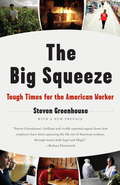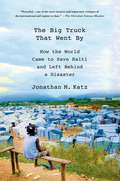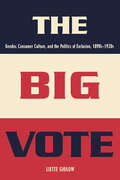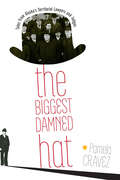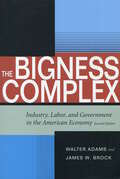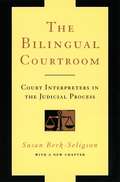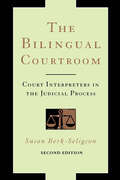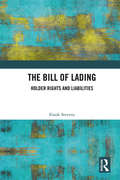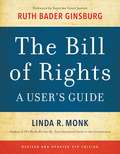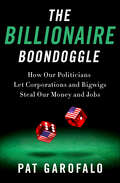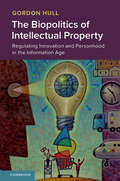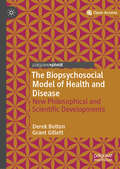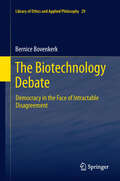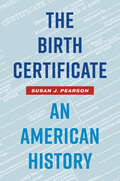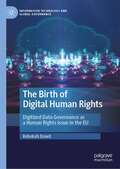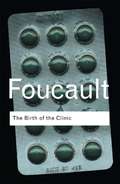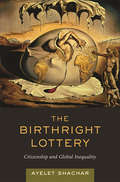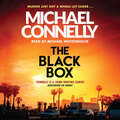- Table View
- List View
The Big Squeeze: Tough Times for the American Worker
by Steven GreenhouseWhy, in the world's most affluent nation, are so many corporations squeezing their employees dry? In this fresh, carefully researched book, New York Times reporter Steven Greenhouse explores the economic, political, and social trends that are transforming America's workplaces, including the decline of the social contract that created the world's largest middle class and guaranteed job security and good pensions. We meet all kinds of workers--white-collar and blue-collar, high-tech and low-tech, middle-class and low-income--as we see shocking examples of injustice, including employees who are locked in during a hurricane or fired after suffering debilitating, on-the-job injuries. With pragmatic recommendations on what government, business and labor should do to alleviate the economic crunch, The Big Squeeze is a balanced, consistently revealing look at a major American crisis.
The Big Truck That Went By: How the World Came to Save Haiti and Left Behind a Disaster
by Jonathan M. KatzOn January 12, 2010, the deadliest earthquake in the history of the Western Hemisphere struck the nation least prepared to handle it. Jonathan M. Katz, the only full-time American news correspondent in Haiti, was inside his house when it buckled along with hundreds of thousands of others. In this visceral, authoritative first-hand account, Katz chronicles the terror of that day, the devastation visited on ordinary Haitians, and how the world reacted to a nation in need. More than half of American adults gave money for Haiti, part of a monumental response totaling $16. 3 billion in pledges. But three years later the relief effort has foundered. It's most basic promises-to build safer housing for the homeless, alleviate severe poverty, and strengthen Haiti to face future disasters-remain unfulfilled. The Big Truck That Went By presents a sharp critique of international aid that defies today's conventional wisdom; that the way wealthy countries give aid makes poor countries seem irredeemably hopeless, while trapping millions in cycles of privation and catastrophe. Katz follows the money to uncover startling truths about how good intentions go wrong, and what can be done to make aid "smarter. " With coverage of Bill Clinton, who came to help lead the reconstruction; movie-star aid worker Sean Penn; Wyclef Jean; Haiti's leaders and people alike, Katz weaves a complex, darkly funny, and unexpected portrait of one of the world's most fascinating countries. The Big Truck That Went By is not only a definitive account of Haiti's earthquake, but of the world we live in today.
The Big Vote: Gender, Consumer Culture, and the Politics of Exclusion, 1890s–1920s (Reconfiguring American Political History)
by Liette GidlowLow voter turnout is a serious problem in American politics today, but it is not a new one. Its roots lay in the 1920s when, for the first time in nearly a century, a majority of eligible Americans did not bother to cast ballots in a presidential election. Stunned by this civic failure so soon after a world war to "make the world safe for democracy," reforming women and business men launched massive campaigns to "Get Out the Vote." By 1928, they had enlisted the enthusiastic support of more than a thousand groups in Forty-six states. In The Big Vote, historian Liette Gidlow shows that the Get-Out-the-Vote campaigns—overlooked by historians until now—were in fact part of an important transformation of political culture in the early twentieth century. Weakened political parties, ascendant consumer culture, labor unrest, Jim Crow, widespread anti-immigration sentiment, and the new woman suffrage all raised serious questions about the meanings of good citizenship. Gidlow recasts our understandings of the significance of the woman suffrage amendment and shows that it was important not only because it enfranchised women but because it also ushered in a new era of near-universal suffrage. Faced with the apparent equality of citizens before the ballot box, middle-class and elite whites in the Get-Out-the-Vote campaigns and elsewhere advanced a searing critique of the ways that workers, ethnics, and sometimes women behaved as citizens. Through techniques ranging from civic education to modern advertising, they worked in the realm of culture to undo the equality that constitutional amendments had seemed to achieve. Through their efforts, by the late 1920s, "civic" had become practically synonymous with "middle class" and "white." Richly documented with primary sources from political parties and civic groups, popular and ethnic periodicals, and electoral returns, The Big Vote looks closely at the national Get-Out-the-Vote campaigns and at the internal dynamics of campaigns in the case-study cities of New York, New York, Grand Rapids, Michigan, and Birmingham, Alabama. In the end, the Get-Out-the Vote campaigns shed light not only on the problem of voter turnout in the 1920s, but on some of the problems that hamper the practice of full democracy even today.
The Biggest Damned Hat: Tales from Alaska's Territorial Lawyers and Judges
by Pamela CravezAlaska history from the days before statehood is rich in stories of colorful characters—prospectors, settlers, heroes, and criminals. And right alongside them were judges and lawyers, working first to establish the rule of law in the territory, then, later, laying the groundwork for statehood. The Biggest Damned Hat presents a fascinating collection of stories ranging from the gold rush to the 1950s. Built on interviews and oral histories from more than fifty lawyers who worked in Alaska before 1959, and buttressed by research into legal history, the book offers a brilliantly multifaceted portrait of law in the territory—from laying the groundwork for strong civil and criminal law to helping to secure mining and fishing rights to the Alaska Court-Bar fight, which pitted Alaska’s community of lawyers against its nascent Supreme Court. Bringing to life a time long past—when some of the best lawyers had little formal legal education—The Biggest Damned Hat fills in a crucial part of the story of Alaska’s history.
The Bigness Complex: Industry, Labor, and Government in the American Economy, Second Edition
by Walter Adams James W. BrockThe Bigness Complex confronts head-on the myth that organizational giantism leads to economic efficiency and well-being in the modern age. On the contrary, it demonstrates how bigness undermines our economic productivity and progress, endangers our democratic freedoms, and exacerbates our economic problems and challenges. This new edition has a thoroughly updated variety of issues, examples, and new developments, including government bailouts of the airline industry; regulation of biotechnology; the fiasco of recent electricity deregulation; and mergers and consolidations in oil, radio, and grocery retailing. The analysis is framed in the timeless context of American distrust of concentrations of power. The authors show how both the left and the right fail to address the central problem of power in formulating their diagnoses and recommendations. The book concludes with an alternative public philosophy as a viable guidepost for public policy toward business in a free-enterprise democracy.
The Bilingual Courtroom: Court Interpreters in the Judicial Process
by Susan Berk-SeligsonDrawing on more than one hundred hours of taped recordings of Spanish/English court proceedings in federal, state, and municipal courts—along with extensive psycholinguistic research using translated testimony and mock jurors—Susan Berk-Seligson's seminal book presents a systematic study of court interpreters, and raises some alarming, vitally important concerns: contrary to the assumption that interpreters do not affect the contents of court proceedings, they could potentially make the difference between a defendant being found guilty or innocent of a crime.
The Bilingual Courtroom: Court Interpreters in the Judicial Process, Second Edition
by Susan Berk-SeligsonSusan Berk-Seligson’s groundbreaking book draws on more than one hundred hours of audio recordings of Spanish/English court proceedings in federal, state, and municipal courts—along with a number of psycholinguistic experiments involving mock juror reactions to interpreted testimony—to present a systematic study of court interpreters that raises some alarming, vitally important concerns. Contrary to the assumption that interpreters do not affect the dynamics of court proceedings, Berk-Seligson shows that interpreters could potentially make the difference between a defendant being found guilty or not guilty of a crime. This second edition of the The Bilingual Courtroom includes a fully updated review of both theoretical and policy-oriented research relevant to the use of interpreters in legal settings, particularly from the standpoint of linguistic pragmatics. It provides new insights into interpreting in quasi-judicial, informal, and specialized judicial settings, such as small claims court, jails, and prisons; updates trends in interpreter certification and credentialing, both in the United States and abroad; explores remote interpreting (for example, by telephone) and interpreter training programs; looks at political trials and tribunals to add to our awareness of international perspectives on court interpreting; and expands upon cross-cultural issues. Also featuring a new preface by Berk-Seligson, this second edition not only highlights the impact of the previous versions of The Bilingual Courtroom, but also draws attention to the continued need for critical study of interpreting in our ever diversifying society.
The Bill of Lading: Holder Rights and Liabilities
by Frank StevensThe carriage of goods by sea starts off with a contract of carriage, an essentially simple and straightforward contract between two parties, the shipper and the carrier. Very often, however, a bill of lading is issued and a third party appears on the scene: the holder of the bill of lading. The holder was not involved in the making of the contract of carriage, but does have rights, and possibly obligations, against the carrier at destination. The question then is how the third-party holder of the bill acquires those rights and obligations. Analysing the different theories that have been proposed to explain the position of the third party holder, this book makes a distinction between contractual theories and non-contractual theories to explain the holder's position. Contractual theories build on the initial contract of carriage and apply contract law mechanisms while non-contractual theories construe the position of the third-party holder independently. Following the analysis and appraisal of the different theories, this book makes the case that the position of the third-party holder of the bill of lading is not obvious or self-evident; and submits that a statutory approach to the position of the holder of the bill of lading has advantages and would be preferable.
The Bill of Rights Primer: A Citizen's Guidebook to the American Bill of Rights
by Akhil Reed Amar Les AdamsMany Americans reference the Bill of Rights, a document that represents many of the freedoms that define the United States. Who doesn't know about the First Amendment's freedom of religion or Second Amendment's right to bear arms? In this pocket-sized volume, Akhil Reed Amar and Les Adams offer a wealth of knowledge about the Bill of Rights that goes beyond a basic understanding.The Bill of Rights Primer is an authoritative guide to all American freedoms. Uncluttered and well-organized, this text is perfect for those who want to study up on the Bill of Rights without needing a law degree to do so.This elementary guidebook presents a short historical survey of the people, events, decrees, legislation, writings, and cultural milestones, in England and the American colonies, that influenced the Founding Fathers as they drafted the U.S. Constitution and Bill of Rights. With helpful comments and fun facts in the margins, the book will provide a deeper understanding of the Bill of Rights, exhibiting that it is not a stagnant document but one with an evolving meaning shaped by historical events, such as the American Civil War and Reconstruction.
The Bill of Rights in the Modern State
by Cass R. Sunstein Richard A. Epstein Geoffrey R. StonePapers from a symposium at the University of Chicago celebrating the bicentennial of the Bill of Rights.
The Bill of Rights: A User's Guide
by Ruth Bader Ginsburg Linda R MonkWith a foreword by Justice Ruth Bader Ginsburg of the U.S. Supreme Court.An Engaging, Accessible Guide to the Bill of Rights for Everyday Citizens.In The Bill of Rights: A User's Guide, award-winning author and constitutional scholar Linda R. Monk explores the remarkable history of the Bill of Rights amendment by amendment, the Supreme Court's interpretation of each right, and the power of citizens to enforce those rights.Stories of the ordinary people who made the Bill of Rights come alive are featured throughout. These include Fannie Lou Hamer, a Mississippi sharecropper who became a national civil rights leader; Clarence Earl Gideon, a prisoner whose handwritten petition to the Supreme Court expanded the right to counsel; Mary Beth Tinker, a 13-year-old whose protest of the Vietnam War established free speech rights for students; Michael Hardwick, a bartender who fought for privacy after police entered his bedroom unlawfully; Suzette Kelo, a nurse who opposed the city's takeover of her working-class neighborhood; and Simon Tam, a millennial whose 10-year trademark battle for his band "The Slants" ended in a unanimous Supreme Court victory. Such people prove that, in the words of Judge Learned Hand, "Liberty lies in the hearts of men and women; when it dies there, no constitution, no law, no court, can save it."Exploring the history, scope, and meaning of the first ten amendments-as well as the Fourteenth Amendment, which nationalized them and extended new rights of equality to all-The Bill of Rights: A User's Guide is a powerful examination of the values that define American life and the tools that every citizen needs. Winner of the American Bar Association's Silver Gavel Award, its highest honor for media about the law.
The Bill of Rights: Protecting Our Freedom Then and Now
by Syl Sobel J.D.This easy-to-read book about the United States for kids brings history and social studies classes to life as readers learn about the Bill of Rights, how they came to be, and what they mean. Here is a book that will be valued by teachers and enjoyed by young students.Parents, teachers, and gift givers will find:a clear explanation of each of the amendmentsfascinating facets of American constitutional history and lawa book that makes the Bill of Rights relevant to kids' livesBy 1787, the leaders of America's 13 newly-created states that had just won their independence from Britain convened to draw up the Constitution of the United States. However, citizens of many of the states feared that a new American government could take away certain of their rights, just as the British had done when they were colonies. It was soon agreed to add a series of ten amendments to the Constitution in order to guarantee specific rights to all citizens and states.
The Billionaire Boondoggle: How Our Politicians Let Corporations and Bigwigs Steal Our Money and Jobs
by Pat Garofalo"An alarming, fact-driven jeremiad urging change and action." –KirkusThe first comprehensive look at how politicians let the entertainment industry bilk taxpayers, hijack public policy and hurt economic investment, starting and ending with Trump. From stadiums and movie productions to casinos and mega-malls to convention centers and hotels, cities and states have paid out billions of dollars in tax breaks, subsidies, and grants to the world's corporate titans. They hope to boost their economies, create new and better jobs, and lure well-known events such as the Super Bowl--not to mention give their officials the chance to meet celebrities. That Big Entertainment drives bigger economies is a myth, however. Overwhelming evidence shows catering public policy to its promises results in a raw deal for the taxpaying public.In The Billionaire Boondoggle, Garofalo takes readers on a tour of publicly-subsidized corporate America to explain how that myth came to be, how much money America's elected officials throw away, and why courting Big Entertainment just courts disaster. You’ll learn how Maryland gave millions of dollars to Netflix to make House of Cards, and Nevada spent hundreds of millions on a new home for the NFL’s Raiders. New Mexico paid big money to host The Avengers, while city after city fell prey to the debt trap that is the Olympics. You’ll see how big sporting goods stores like Bass Pro Shops and big casinos across the country all get in on the subsidy scam. And you’ll see how many cities got in bed with hotel titans, including Donald J. Trump himself.This book is the go-to guide for the many ways in which American taxpayers unknowingly subsidize the TV shows they watch, the sports teams they root for and the hotels they sleep in, all based on an economic theory that only adds up for CEOs and bigwigs.
The Bioarchaeology of Dissection and Autopsy in the United States (Bioarchaeology and Social Theory)
by Kenneth C. NystromEncountering evidence of postmortem examinations- dissection or autopsy in historic skeletal collections is relativelyrare, but recently there has been an increase in the number of reportedinstances. And much of what has been evaluated has been largely descriptiveand historical. The Bioarchaeology ofDissection and Autopsy brings together in a single volume the skeletal evidence ofpostmortem examination in the United States. Ranging from the earlycolonial period to the early 1900's, from a coffeehouse at ColonialWilliamsburg to a Quaker burial vault in lower Manhattan, the contributions to this volume demonstrate the interpretive significance of a historically andtheoretically contextualizedbioarchaeology. The authors employ a wide range of perspectives, demonstrating how bioarchaeological evidence can be used to address a widerange of themes including social identity and marginalization, racialization,the nature of the body and fragmentation, and the emergence of medical practiceand authority in the United States.
The Bioethics of Pain Management: Beyond Opioids (Routledge Annals of Bioethics)
by Daniel S. GoldbergIn this book, public health ethicist Daniel S. Goldberg sets out to characterize the subjective experience of pain and its undertreatment within the US medical establishment, and puts forward public policy recommendations for ameliorating the undertreatment of pain. The book begins from the position that the overwhelming focus on opioid analgesics as a means for improving the undertreatment of pain is flawed, and argues instead that dominant Western models of biomedicine and objectivity delegitimize subjective knowledge of the body and pain in the US. This general intolerance for the subjectivity of pain is part of a specific American culture of pain in which a variety of actors take part, including not only physicians and health care providers, but also pain sufferers, caregivers, and policymakers. Concentrating primarily on bioethics, history, and public policy, the book brings a truly interdisciplinary approach to an urgent practical ethical problem. Taking up the practical challenge, the book culminates in a series of policy recommendations that provide pathways for moral agents to move beyond contests over drug policy to policy arenas that, based on the evidence, hold more promise in their capacity to address the devastating and inequitable undertreatment of pain in the US.
The Biopolitics of Intellectual Property: Regulating Innovation and Personhood in the Information Age
by Gordon HullAs a central part of the regulation of contemporary economies, intellectual property (IP) is central to all aspects of our lives. It matters for the works we create, the brands we identify and the medicines we consume. But if IP is power, what kind of power is it, and what does it do? Building on the work of Michel Foucault, Gordon Hull examines different ways of understanding power in copyright, trademark and patent policy: as law, as promotion of public welfare, and as promotion of neoliberal privatization. He argues that intellectual property policy is moving toward neoliberalism, even as that move is broadly contested in everything from resistance movements to Supreme Court decisions. This work should be read by anyone interested in understanding why the struggle to conceptualize IP matters.
The Biopsychosocial Model of Health and Disease: New Philosophical and Scientific Developments
by Grant Gillett Derek BoltonThis open access book is a systematic update of the philosophical and scientific foundations of the biopsychosocial model of health, disease and healthcare. First proposed by George Engel 40 years ago, the Biopsychosocial Model is much cited in healthcare settings worldwide, but has been increasingly criticised for being vague, lacking in content, and in need of reworking in the light of recent developments. The book confronts the rapid changes to psychological science, neuroscience, healthcare, and philosophy that have occurred since the model was first proposed and addresses key issues such as the model’s scientific basis, clinical utility, and philosophical coherence. The authors conceptualise biology and the psychosocial as in the same ontological space, interlinked by systems of communication-based regulatory control which constitute a new kind of causation. These are distinguished from physical and chemical laws, most clearly because they can break down, thus providing the basis for difference between health and disease. This work offers an urgent update to the model’s scientific and philosophical foundations, providing a new and coherent account of causal interactions between the biological, the psychological and social.
The Biotechnology Debate
by Bernice BovenkerkThis book grounds deliberative democratic theory in a more refined understanding of deliberative practice, in particular when dealing with intractable moral disagreement regarding novel technologies. While there is an ongoing, vibrant debate about the theoretical merits of deliberative democracy on the one hand, and more recently, empirical studies of specific deliberative exercises have been carried out, these two discussions fail to speak to one another. Debates about animal and plant biotechnology are examined as a paradigmatic case for intractable disagreement in today's pluralistic societies. This examination reveals that the disagreements in this debate are multi-faceted and multi-dimensional and can often be traced to fundamental disagreements about values or worldviews. "One of the acute insights to emerge from this examination is that deliberation can serve different purposes vis-à-vis different types of problem. In the case of deeply unstructured problems, like the modern biotechnology debate, the aim of inclusion is more appropriate than the aim of consensus. This book highlights the importance of political culture and broader institutional settings in shaping the capacity and propensity of citizens to engage in deliberation and the degree to which governments are prepared to relinquish authority to deliberative mini-publics." Robyn Eckersley, University of Melbourne, Australia
The Birth Certificate: An American History
by Susan J. PearsonFor many Americans, the birth certificate is a mundane piece of paper, unearthed from deep storage when applying for a driver's license, verifying information for new employers, or claiming state and federal benefits. Yet as Donald Trump and his fellow "birthers" reminded us when they claimed that Barack Obama wasn't an American citizen, it plays a central role in determining identity and citizenship.In The Birth Certificate: An American History, award-winning historian Susan J. Pearson traces the document's two-hundred-year history to explain when, how, and why birth certificates came to matter so much in the United States. Deftly weaving together social, political, and legal history, The Birth Certificate is a fascinating biography of a piece of paper that grounds our understanding of how those who live in the United States are considered Americans.
The Birth of Digital Human Rights: Digitized Data Governance as a Human Rights Issue in the EU (Information Technology and Global Governance)
by Rebekah DowdThis book considers contested responsibilities between the public and private sectors over the use of online data, detailing exactly how digital human rights evolved in specific European states and gradually became a part of the European Union framework of legal protections. The author uniquely examines why and how European lawmakers linked digital data protection to fundamental human rights, something heretofore not explained in other works on general data governance and data privacy. In particular, this work examines the utilization of national and European Union institutional arrangements as a location for activism by legal and academic consultants and by first-mover states who legislated digital human rights beginning in the 1970s. By tracing the way that EU Member States and non-state actors utilized the structure of EU bodies to create the new norm of digital human rights, readers will learn about the process of expanding the scope of human rights protections within multiple dimensions of European political space. The project will be informative to scholar, student, and layperson, as it examines a new and evolving area of technology governance – the human rights of digital data use by the public and private sectors.
The Birth of Surrogacy in Israel
by D. Kelly WeisbergThis is the first book that explores the controversial dilemmas posed by surrogate motherhood--the practices that help infertile couples to have a biologically related child--and connects them to events that led to passage of a revolutionary surrogacy law in Israel. As D. Kelly Weisberg discusses the country's surrogacy legislation, passed in 1996, she reveals a unique regulatory scheme that blazes a trail for those who wrestle with the complex legal, medical, and ethical aspects of new reproductive technologies. At the same time, she illuminates the roles of key players in the enactment of that program--barren wives challenged the government, childless couples who participated in a lawsuit against the Israeli Parliament, the family law practitioner who championed the cause before the Israeli Supreme Court, the academics who served on the law reform commission, and the feminist legal scholar who drafted that commission's controversial recommendations. Surrogacy has led to the birth of more than 10,000 babies worldwide. Yet the practice challenges our notions of motherhood, fatherhood, family, and procreation. With surrogacy, the family has become a creation of the marketplace: children come into being as the product of contractual arrangements between perfect strangers. And serious disputes sometimes arise as a result. Conservative religious and political influences at play in Israel make it an unlikely setting for progressive reform; however, the Surrogate Mother Agreements Act catapulted Israel to the forefront of public attention as the only country where surrogacy is legal, remunerated, and government-supervised. No other law exists that is as comprehensive as Israel's. Weisberg examines the social forces that contributed to the law, documenting the clash between religious groups, which paradoxically favored a law on reproductive freedom, and feminist groups, which opposed it. She assesses the new law, discusses what other countries can learn from Israel's example, and explores its implications for the globalization of surrogacy. She also considers generally the role of religion and law in social change.
The Birth of Tragedy and the Case of Wagner
by Friedrich NietzscheThe Birth of Tragedy (1872) was Nietzsche's first book. Its youthful faults were exposed by Nietzsche in the brilliant "Attempt at a Self-Criticism" which he added to the new edition of 1886. But the book, whatever its excesses, remains one of the most relevant statements on tragedy ever penned. It exploded the conception of Greek culture that was prevalent down through the Victorian era, and it sounded themes developed in the twentieth century by classicists, existentialists, psychoanalysts, and others. The Case of Wagner (1888) was one Nietzsche's last books, and his wittiest. In attitude and style it is diametrically opposed to The Birth of Tragedy. Both works transcend their ostensible subjects and deal with art and culture, as well as the problems of the modern age generally. Each book in itself gives us an inadequate idea of its author; together, they furnish a striking image of Nietzsche's thought. The distinguished new translations by Walter Kaufmann superbly reflect in English Nietzsche's idiom and the vitality of his style. Professor Kaufmann has also furnished running footnote commentaries, relevant passages from Nietzsche's correspondence, a bibliography, and, for the first time in any edition, an extensive index to each book.
The Birth of the Clinic: An Archaeology Of Medical Perception (Routledge Classics)
by Michel FoucaultIn this remarkable book Michel Foucault, one of the most influential thinkers of recent times, calls us to look critically at specific historical events in order to uncover new layers of significance. In doing so, he challenges our assumptions not only about history, but also about the nature of language and reason, even of truth. The scope of such an undertaking is vast, but by means of his uniquely engaging narrative style, Foucault’s penetrating gaze is skilfully able to confront our own. After reading his words our perceptions are never quite the same again.
The Birthright Lottery: Citizenship and Global Inequality
by Ayelet ShacharThe vast majority of the global population acquires citizenship purely by accidental circumstances of birth. In The Birthright Lottery, Ayelet Shachar argues that birthright citizenship in an affluent society can be thought of as a form of property inheritance: that is, a valuable entitlement transmitted by law to a restricted group of recipients under conditions that perpetuate the transfer of this prerogative to their heirs.
The Black Box (Harry Bosch Series #16)
by Michael ConnellyMay 1992, and after four LAPD officers were acquitted after the savage beating of Rodney King, Los Angeles is ablaze. As looting and burning take over the city, law and order are swept away in a tidal wave of violence. But under threat of their lives, homicide detectives like Harry Bosch are still stubbornly trying to do their job. With no effective police presence on the streets, murder just got a whole lot easier - and investigating them got a whole lot harder. When Harry finds the body of a female journalist in an alley he is forced to hand over the case to the Riot Crimes Task Force, knowing that it will never be solved.Twenty years later, new evidence confirms her death was not a case of random violence but something much more personal. This time Harry is determined that the killer isn't going to escape - even if it means stepping back into the darkest days of the city he loves...Read by Michael McConnohie(p) 2012 Hachette Audio
